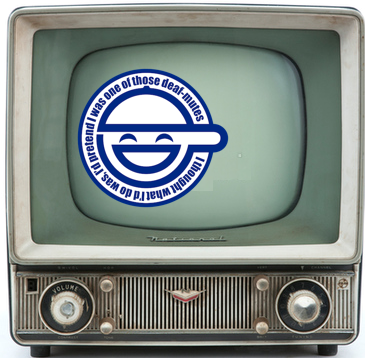Japanese history of Television Set


"On 25 December 1926, Kenjiro Takayanagi demonstrated a television system with a 40-line resolution that employed a Nipkow disk scanner and CRT display at Hamamatsu Industrial High School in Japan. This prototype is still on display at the Takayanagi Memorial Museum in Shizuoka University, Hamamatsu Campus. His research in creating a production model was halted by the SCAP after World War II....A digital TV service was proposed in 1986 by Nippon Telegraph and Telephone (NTT) and the Ministry of Posts and Telecommunication (MPT) in Japan, where there were plans to develop an "Integrated Network System" service. However, it was not possible to practically implement such a digital TV service until the adoption of DCT video compression technology made it possible in the early 1990s.[141] In the mid-1980s, as Japanese consumer electronics firms forged ahead with the development of HDTV technology, the MUSE analog format proposed by NHK, a Japanese company, was seen as a pacesetter that threatened to eclipse U.S. electronics companies' technologies. Until June 1990, the Japanese MUSE standard, based on an analog system, was the front-runner among the more than 23 different technical concepts under consideration. Then, an American company, General Instrument, demonstrated the feasibility of a digital television signal. This breakthrough was of such significance that the FCC was persuaded to delay its decision on an ATV standard until a digitally based standard could be developed."-Television by Wiki.
「1926年12月25日、高柳憲治郎は浜松工業高等学校において、ニプコウディスク走査装
置とブラウン管ディスプレイを用いた40ライン解像度のテレビジョンシステムを実演した。この試作機は現在も静岡大学浜松キャンパスの高柳記念館に展示さ
れている。彼の量産モデル開発研究は第二次世界大戦後、連合国軍最高司令官総司令部(SCAP)によって中止された。1986年、日本電信電話公社
(NTT)と郵政省はデジタルテレビサービスの導入を提案した。これは「統合ネットワークシステム」サービスの開発計画の一環であった。しかし、1990
年代初頭にDCT映像圧縮技術が採用されるまで、このようなデジタルテレビサービスを実用化することは不可能であった。[141]
1980年代半ば、日本の家電メーカーがHDTV技術の開発を推進する中、日本放送協会(NHK)が提案したアナログ方式「MUSE」は、米国家電メー
カーの技術を凌駕しかねない先駆的規格と見なされた。1990年6月まで、アナログシステムに基づく日本のMUSE規格は、検討中の23以上の異なる技術
構想の中で最有力候補であった。しかしその後、アメリカのゼネラル・インスツルメント社がデジタルテレビ信号の実現可能性を実証した。この画期的な進展は
極めて重要であり、連邦通信委員会(FCC)はデジタルベースの規格が開発されるまで、ATV規格に関する決定を延期するよう説得されたのである。」
| 1 |
p.97 |
1. ハイテク技術のクアトロンが売れ
ない理由は? |
| 2 |
2. 娯楽の王者にして超ハイエンド商
品だったテレビ |
|
| 3 |
3. テレビの世界でも「破壊」をおこ
したはソニー |
|
| 4 |
4. ブラック企業並みの労働環境から
生み出された次男坊 |
|
| 5 |
5. フランク・シナトラもお気に入
り、アメリカでも大ヒット |
|
| 6 |
6. 据え置き型テレビのイノベーショ
ンではすべて持続的 |
|
| 7 |
106 |
7. トリニトロンも液晶も持続的イノ
ベーション |
| 8 |
8. 液晶技術のトリクルアップの終着
点=据え置き型テレビ |
|
| 9 |
109 |
9. 薄型テレビ「敗戦」の原因→イノ
ベーション状況の変化 |
| 10 |
10. 画素数:フルハイビジョンが当
たり前に |
|
| 11 |
11. コントラスト比:性能向上が感
じられないレベルに |
|
| 12 |
12. 反応速度:16倍速の描画さえ
も可能に |
|
| 13 |
13. テレビを取り巻く環境は、破壊
的イノベーションの状況へ |
|
| 14 |
117 |
14. 画素数が4倍になった4Kテレ
ビのメリットは |
| 15 |
15. テレビを雇う、顧客の用事を分
析 |
|
| 16 |
16. 暇つぶしという用事では有り難
みは増えず |
|
| 17 |
17. 情報収集の目的でも便益は向上
せず |
|
| 18 |
18. 感動を得るなら、一定の需要は
認めるも…… |
|
| 19 |
123 |
19. 4Kテレビの世帯普及率はマッ
サージチェア程度か |
+++
リンク
文献
その他の情報
Copyleft, CC, Mitzub'ixi Quq Chi'j, 1997-2099
Do not paste, but
[Re]Think our message for all undergraduate
students!!!
++
Copyleft,
CC, Mitzub'ixi Quq Chi'j, 1996-2099